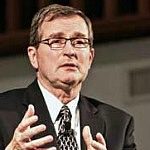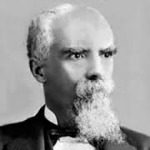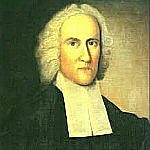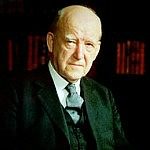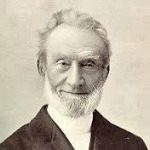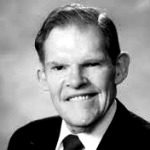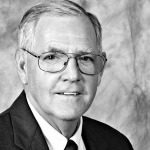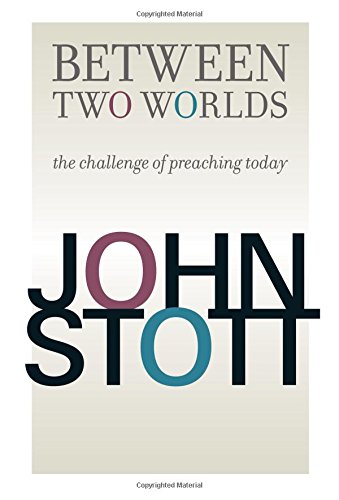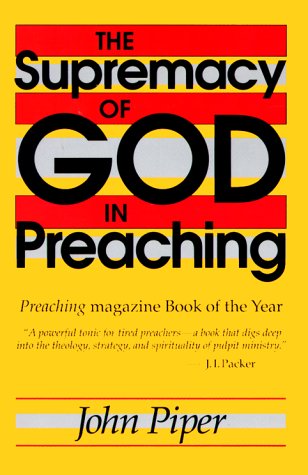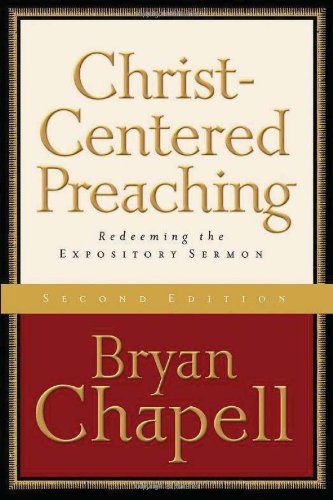Quotes about Preaching-Holy_Spirit
The purpose of reading, explaining and applying a portion of Scripture is to obey the command to “preach the Word.” In no other way may we expect to experience the presence and power of the Holy Spirit in our preaching. He did not spend thousands of years producing the Old and New Testaments…only to ignore it! What He “moved” men to write He now motivates us to preach. He has not promised to bless our word; that promise extends only to His own (Isa. 55:10, 11).
Preaching with a Purpose, Zondervan, 1982, p. 19. Get this book!
You must not exhort your congregation to do whatever the Bible requires of them as though they could fulfill those requirements on their own, but only as a consequence of the saving power of the cross and the indwelling, sanctifying power and presence of Christ in the Person of the Holy Spirit
Preaching with a Purpose, Zondervan, 1982, p. 147. Get this book!
Head knowledge is not evil in and of itself. Most of our Reformed and Puritan forefathers were highly educated. The Reformers never tired of stressing the value of Christian education. But this education must be empowered by the Holy Spirit and applied to the heart. Head knowledge is insufficient without the Spirit’s application to the inward man.
Unction is the sweetest exhalation of the Holy Spirit. It carries the Word like dynamite, like salt, like sugar; makes the Word a soother, an accuser, a revealer, a searcher; makes the hearer a culprit or a saint, makes him weep like a child and live like a giant; opens his heart and his purse as gently, yet as strongly as the spring opens the leaves. This unction is not the gift of genius. It is not found in the hall of learning. No eloquence can woo it. No industry can win it. It is the gift of God – the signet set to His own messengers. It is heaven’s knighthood given to the chosen true and brave ones who have sought this anointed honor through many an hour of tearful, wrestling prayer. Earnestness is good and impressive; genius is gifted and great. Thought kindles and inspires, but it takes a diviner endowment, a more powerful energy than earnestness or genius or thought to break the chains of sin, to win estranged and depraved hearts to God, to repair the breaches and restore the church to her old ways of purity and power. Nothing but holy unction can do this.
Our public assemblies were then beautiful; the congregation was alive in God’s service, everyone earnestly intent on the public worship, every hearer eager to drink in the words of the minister as they came from his mouth; the assembly in general were, from time to time, in tears while the Word was preached; some weeping with sorrow and distress, others with joy and love, others with pity and concern for the souls of their neighbors.
A Faithful Narrative of the Surprising Work of God, Works, Vol. 4, p. 151.|A Faithful Narrative of the Surprising Work of God, Works, Vol. 4, p. 151.
We preach and pray, and you hear; but there is no motion Christ-ward until the Spirit of God blows upon them.
A Puritan Golden Treasury, compiled by I.D.E. Thomas, by permission of Banner of Truth, Carlisle, PA. 2000, p. 142.
While it is true that people are converted and matured through expositional preaching, the word of the gospel must be wedded to the Spirit’s work in order for conviction of sin, regeneration, repentance and faith, and lifelong perseverance to come. Or to put it differently, “Neither he who plants nor he who waters is anything, but only God who gives the growth” (1 Cor. 3:7)
Expositional Preaching, ©9Marks. Website: www.9Marks.org. Email: [email protected] Free: (888) 543-1030. Used by Permission. p. 34.
Our churches can’t be Spirit-led unless they’re Word-fed. A church that’s dependent on the Spirit’s power in its worship will be committed to the study, proclamation, and application of God’s Word in its personal and congregational worship. The Word and the Spirit were never meant to be separated. In fact God’s Spirit is the one who inspired God’s Word… God’s Spirit and His Word go together.
Worship Matters, Crossway Books, 2008, Crossway Books, a division of Good News Publishers, Wheaton Illinois 60187, www.crosswaybooks.org, p. 89-90. Get this book!
What about the people [when the Spirit is moving a preacher]? They sense it at once; they can tell the difference immediately. They are gripped, they become serious, they are convicted, they are moved, they are humbled. Some are convicted of sin, others are lifted up to the heavens, anything may happen to any one of them. They know at once that something quite unusual and exceptional is happening. As a result they begin to delight in the things of God and they want more and more teaching.
Preaching and Preachers, Zondervan, 1972, p. 324-325. Get this book!
There is a very real danger of our putting our faith in our sermon rather than in the Spirit. Our faith should not be in the sermon, it should be in the Holy Spirit Himself.
Preaching and Preachers, Zondervan, 1972, p. 230. Get this book!
You can have knowledge, and you can be meticulous in your preparation; but without the unction of the Holy Spirit you will have no power, and your preaching will not be effective.
Preaching and Preachers, Zondervan, 1972, p. 319. Get this book!
[The Holy Spirit brings] clarity of thought, clarity of speech, ease of utterance, a great sense of authority and confidence as you are preaching, an awareness of a power not your own thrilling through the whole of your being, and an indescribable sense of joy. You are a man “possessed,” you are taken hold of, and taken up. I like to put it like this – and I know of nothing on earth that is comparable to this feeling – that when this happens you have a feeling that you are not actually doing the preaching, you are looking on. You are looking on at yourself in amazement as this is happening. It is not your effort; you are just the instrument, the channel, the vehicle: and the Spirit is using you, and you are looking on in great enjoyment and astonishment. There is nothing that is in any way comparable to this.
Preaching and Preachers, Zondervan, 1972, p. 324. Get this book!
We all tend to go to extremes; some rely only on their own preparation and look for nothing more; others, as I say, tend to despise preparation and trust to the unction, the anointing and the inspiration of the Spirit alone. But there must be no “either/or” here; it is always “both/and.” These two things must go together.
Without His divine empowerment, preaching the gospel would be nothing more than dead letters falling upon dead hearts.
Strange Fire, Copyright © John MacArthur, 2013, p. 227.
Get this book!
There must be a dread about the minister; one which works in such a way as to render him wholly dependent upon the Spirit of God to communicate the Word of God through him by means of his message. There must be a complete reliance on God and an utter destitute of self, or the pulpit is nothing more than an exercise in futility. If a preacher does not see this, then he is no preacher. If a preacher does not live this, he is not called to preach. Butterflies before preaching a sermon is not a warrant for understanding the weightiness of the task at hand. You can get butterflies before you speak at a bar-b-que. There must be a day-to-day cry from the closet of the preacher to the throne room of heaven, a besieging of heaven with a holy fervor that this man knows he is unable to bring any good to the people lest God is with him.
The anointing of the Holy Spirit helps me greatly when I preach. I would never attempt to teach the truth of God by my own power.
The Autobiography of George Muller, 1984, p. 35. All quotations taken from books published by Whitaker House are used with permission of the publisher. Whitaker House books are available at Christian bookstores everywhere. Get this book!
Let’s never be intimidated or depressed by our ordinariness and inadequacy and unimpressiveness. Most of us are quite ordinary. All of us can improve our preaching, and we will. But the sacred given is the message of the cross, which the Holy Spirit empowers in men of the cross. Let’s not disempower it. Let’s trust God’s strategy. God Himself entered into His own strategy through an egoless nobody named Jesus Christ, whom this brilliant world crucified. That Christ is sending us out to preach His message by His power. We are fully equipped in every essential with the testimony of God, the message of Christ crucified, and the power of the Holy Spirit. Will you decide to stake your whole ministry there?
Pastoral Pensées: Power in Preaching: Decide (1 Corinthians 2:1-5), Themelios, April 2009. Used by Permission of Gospel Coalition.
To preach in the power of the Holy Spirit is not to take a good thing and make it even better. Preaching the truth in one’s own strength is destructive (1 Corinthians 1:17). “The word is not in him.” Preaching the gospel in the power of God is the only true preaching. All lesser preaching is sinful and to be repented of.
Jonathan Edwards’s own analysis of the revivals: the Word is the occasion for awakening, and a necessary one, but the Spirit of God does the work, and he “blows where he wills.” His passing could be seen in lasting changes: People made humble, faithful, prayerful, holy. Churches made earnest in worship and hungry for the Word. Towns where, to quote Charles Simeon, a century later, “goodness” became “fashionable” (Stephen Holmes).
In all our preaching we are dependent upon the Holy Spirit. Like frail sailing crafts with their sails, we are helpless without the wind of the Spirit. No matter how well we have prepared and equipped ourselves, our words fall to the ground apart from the gracious unction that the Lord Jesus, the Head of the church, gives by the Spirit (Derek Prime and Alistair Begg).
The hidden factor in every encouragement we give, or exhortation, or difficult piece of advice or correction, is that God the Holy Spirit indwells the believer to back it up, and to apply it with a force we do not possess. Our confidence that people will react and respond in the right way is not our confidence in human nature but our confidence regarding God’s working in them (Derek Prime and Alistair Begg).
On Being a Pastor, Moody Press, 2004, p. 169. Get this book!
[Receiving divine truth is] the especial work of the Spirit of God on the minds of men, communicating spiritual wisdom, light, and understanding unto them, necessary unto their discerning and apprehending aright the mind of God in His word, and the understanding of the mysteries of heavenly truth contained therein.
Accuracy, not to speak of integrity, demands that we develop every possible skill to keep us from declaring in the name of God what the Holy Spirit never intended to convey.
You might as well expect to raise the dead by whispering in their ears, as hope to save souls by preaching to them, if it were not for the agency of the Spirit.
The gospel is preached in the ears of all; it only comes with power to some. The power that is in the gospel does not lie in the eloquence of the preacher; otherwise men would be converters of souls. Nor does it lie in the preacher’s learning; otherwise it would consist in the wisdom of men. We might preach till our tongues rotted, till we should exhaust our lungs and die, but never a soul would be converted unless there were mysterious power going with it – the Holy Ghost changing the will of man. O Sirs! We might as well preach to stone walls as to preach to humanity unless the Holy Ghost be with the Word, to give it power to convert the soul.
Unless the Holy Ghost blesses the Word, we who preach the gospel are of all men most miserable, for we have attempted a task that is impossible. We have entered on a sphere where nothing but the supernatural will ever avail. If the Holy Spirit does not renew the hearts of our hearers, we cannot do it. If the Holy Ghost does not regenerate them, we cannot. If He does not send the truth home into their souls, we might as well speak into the ear of a corpse.
Oh, without prayer what are the church’s agencies, but the stretching out of a dead man’s arm, or the lifting up of the lid of a blind man’s eye? Only when the Holy Spirit comes is there any life and force and power.
The power that is in the Gospel does not lie in the eloquence of the preacher, otherwise men would be the converters of souls, nor does it lie in the preacher’s learning, otherwise it would consist in the wisdom of men. We might preach until our tongues rotted, till we would exhaust our lungs and die, but never a soul would be converted unless the Holy Spirit be with the Word of God to give it the power to convert the soul.
We [must] give the Spirit of God opportunity to work in their lives to enable them to digest biblical truth. “A man convinced against his will is of the same opinion still,” but those members taught by the Spirit of God will indeed be changed.
Practical Wisdom for Pastors, Crossway Books, 2001, p. 137. Used by Permission. Get this book!
Ultimately, of course, the effectiveness of preaching is the work of the Spirit. The most expertly crafted and powerfully delivered sermon imaginable will accomplish nothing if He does not act to persuade and enable the hearer to respond to the truth. But at the same time, we must also remember that the Spirit does not act in a vacuum. Ordinarily, He uses means, and preaching which employs all the rhetorical devices within the preacher’s ability is one of those means.
Practical Wisdom for Pastors, Crossway Books, 2001, p. 244. Used by Permission. Get this book!
Why the Holy Spirit should be restricted so that He can only be at work at the moment a sermon is delivered and not in the thoughtful and prayerful preparation beforehand, I don’t know. The same mistake was made by an actual preacher who used to prepare the first half of his sermons and then freewheel the second half, wishing to “depend on the Holy Spirit for inspiration.” One astute lady listening to him one day was perplexed by the change that took place halfway through the sermon. Afterwards she asked the preacher what happened. So he explained his method to which she replied, “That is strange. You are a better preacher than the Holy Spirit!”
I am not discounting the Holy Spirit’s power to capture, convict, and change people through His Word. We are always utterly dependent on Him, and we are never called to do His work. But the Holy Spirit has commissioned us, and our job is to do everything we can to be sharp instruments in His redemptive hands.
Mediocrity by Paul David Tripp taken from Dangerous Calling by Paul David Tripp copyright 2012, Crossway Books, a division of Good News Publishers, Wheaton Illinois 60187, www.crosswaybooks.org, p. 149.

